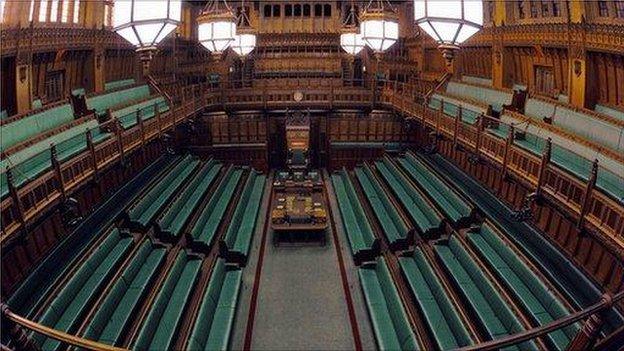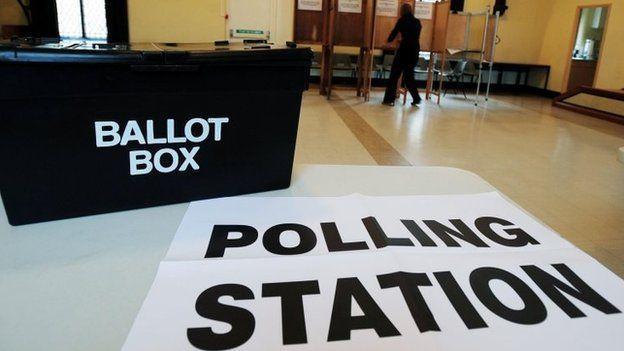NI general election campaign packed with incident
- Published

The local race for the House of Commons was packed with incident
While it hasn't been an epic encounter like the referendum on the Good Friday Agreement or the following struggles for dominance within unionism and nationalism, I don't agree that the 2015 Westminster campaign has been lacklustre.
At times it felt disjointed as the local parties fought over different territory.
The DUP emphasised its potential role in a hung parliament, while Sinn Féin portrayed the contest as a battle against austerity; a stepping stone towards next year's Dáil and Stormont elections.
However it was certainly packed with incident.
The local parties complained about being excluded from the UK-wide debates, but threats of legal action came to nothing.
The two main unionist parties were accused of playing sectarian politics when they agreed a pact in four seats.
Sinn Féin faced the same allegation after distributing a leaflet in North Belfast that equated Catholics with nationalists and Protestants with unionists.
The DUP had to defend including a feasibility study for a tunnel to Scotland in its manifesto. Sinn Féin had to explain an apparent promise from one of its candidates to pay off people's credit card debts.
SDLP leader Alasdair McDonnell kept a low profile during debates and hustings. The former leader Mark Durkan didn't seem to bother defending Dr McDonnell against criticism of his double jobbing in the BBC's final election debate.

Difficult negotiations are inevitable once the election is over
Mindful of the pact, the Ulster Unionists muted their criticism of the DUP, whilst working to try to make up the ground against the bigger party in a couple of key seats.
Other parties such as the TUV and UKIP targeted the Northern Ireland Executive parties' track record at Stormont and the mandatory coalition system that makes it so hard to change the make-up of the devolved government. The Greens emphasised their opposition to any welfare cuts.
The DUP endeavoured to keep the focus on the UK-wide position and the need to strengthen the union.
Unresolved deadlock
But same-sex marriage - now the subject of a referendum in the Republic of Ireland - forced its way on to the agenda.
That eventually led to the big political story of the campaign - the resignation of Stormont Health Minister Jim Wells after making controversial comments on homosexuality and child abuse at a Downpatrick hustings.
On the lighter side, I haven't covered a campaign before where a candidate (the UUP's Robin Swann) says he was been mistaken for a male stripper while canvassing a house.
Nor have we seen a candidate (Sinn Féin's Gerry Kelly) soliciting a Star Wars stormtrooper for support (even though criticism of his party's leaflet led some social media wags to joke about whether it was "a Protestant stormtrooper or a Catholic stormtrooper").
Once the votes are cast and the ballot papers counted, we will know whether the local parties will be in a position to make a difference in a hung parliament.
Either way, some difficult negotiations between our representatives and a new Northern Ireland secretary are inevitable, as the unresolved deadlock over welfare reform means the current Stormont budget has a black hole that needs to be filled.